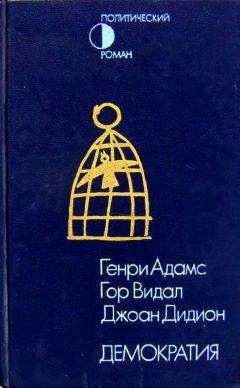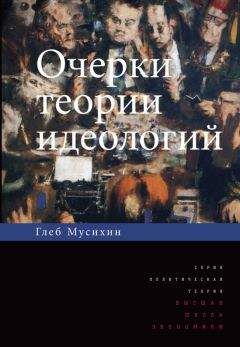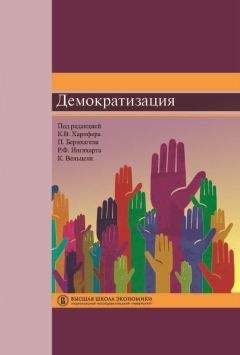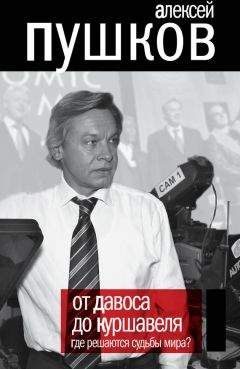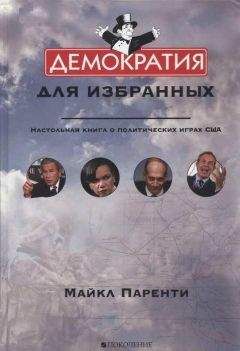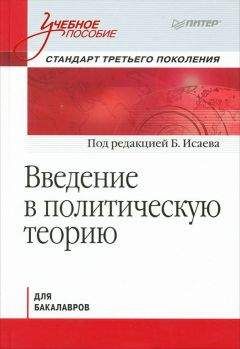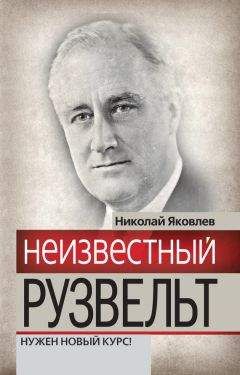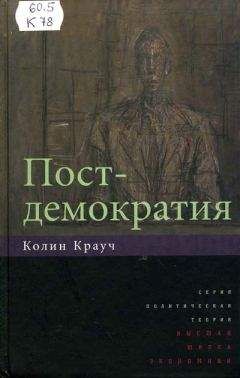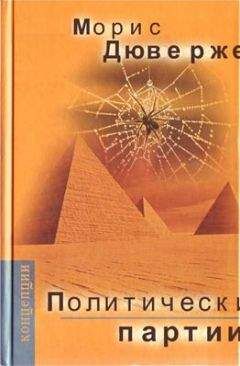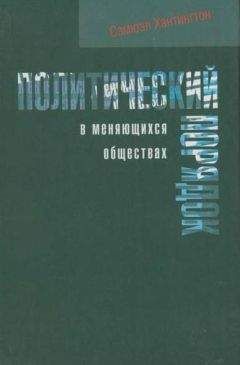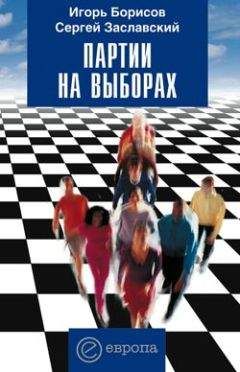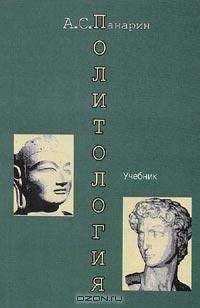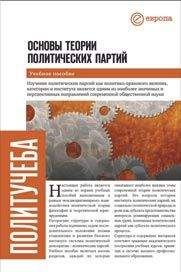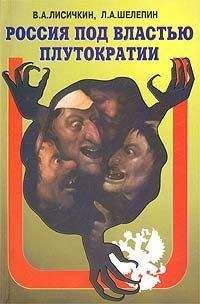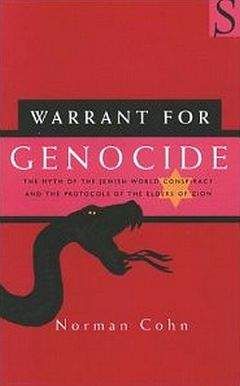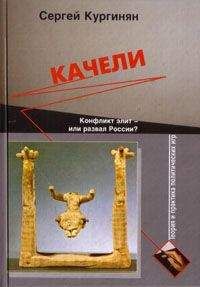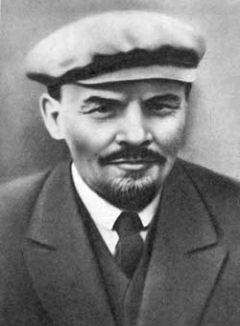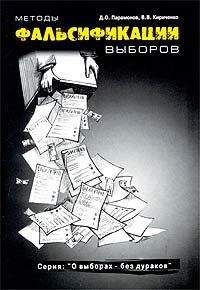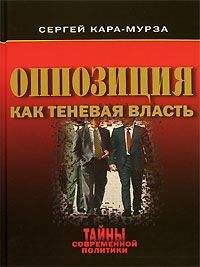Чарльз Эндрейн - Сравнительный анализ политических систем
Скачивание начинается... Если скачивание не началось автоматически, пожалуйста нажмите на эту ссылку.
Жалоба
Напишите нам, и мы в срочном порядке примем меры.
Описание книги "Сравнительный анализ политических систем"
Описание и краткое содержание "Сравнительный анализ политических систем" читать бесплатно онлайн.
Когда мы смотрим на политическую карту мира, то вряд ли нам приходит в голову мысль провести скрупулезный анализ всего многообразия существующих на Земле политических систем. Эту сложную, но выполнимую задачу поставил в своей книге профессор Ч. Эндрейн. Он не только сравнил различные политические системы, выявил общее и особенное в их функционировании, но и рассмотрел роль элит, групп и отдельных индивидуумов в проведении политического курса. Книга, пользующаяся большой популярностью в странах Запада, ныне станет доступна и нашему читателю, постоянно ощущающему потребность в учебной литературе по политическим наукам. Ее издание рекомендовано Российской ассоциацией политических наук.
Издание осуществлено при содействии Отдела по вопросам печати и культуры Посольства США
124
McDaniel, Autocracy, Modernization, and Revolution in Russia and Iran, 3—13, 111–48,185–232.
125
Raymond A. Bauer, Alex Inkeles, and Clyde Kluckhohn, How the Soviet System Works (New York: Random House Vintage Books, 1956), 52–59; Lars T. Lih, «Stalinism», in The Oxford Companion to Politics of the World, ed. Joel Krieger (New York: Oxford University Press, 1993), 876–78.
126
Ekkart Zimmermann, «On the Outcomes of Revolutions: Some Preliminary Considerations», Sociological Theory 8 (Spring 1990): 33–47; Raj Desai and Harry Eckstein, «Insurgency: The Transformation of Peasant Rebellion», World Politics 42 (July 1990): 441—65; John Sloan and Kent L. Tedin, «The Consequences of Regime Type for Public–Policy Outputs», Comparative Political Studies 20 (April 1987): 98–124; Skocpol, «Social Revolutions and Mass Military Mobilization», 147–68; John W. Sloan, «The Policy Capabilities of Democratic Regimes in Latin America», Latin American Research Review 24, no. 2 (1989): 113–26; Karen L. Remmer, «Democracy and Economic Crisis: The Latin American Experience», World Politics 42 (April 1990): 315—35; Alexander Woodside, «History, Structure, and Revolution in Vietnam», International Political Science Review 10 (April 1989): 154–55; Gareth Porter, «The Politics of 'Renovation' in Vietnam», Problems of Communism 39 (May—June 1990): 72–88; Brigid A. Starkey, «Islam, Culture and Revolution: The Case of Iran», Journal of Developing Societies 6 (January–April 1990): 87–97; John Foran and Jeff Goodwin, «Revolutionary Outcomes in Iran and Nicaragua: Coalition Fragmentation, War, and the Limits of Social Transformation», Theory and Society 22 (April 1993): 209–47.
127
Hector E, Schamis, «Reconceptualizing Latin American Authoritarianism in the 1970s», Comparative Politics 23 (January 1991): 201–20.
128
Dennis Chong, Collective Action and the Civil Rights Movement (Chicago: University of Chicago Press, 1991), 191–229.
129
Jan Feldman, «The Propagation and Impact of Ideology in the USSR», Problems of Communism 38 (September—October 1989): 87—95; Raymond A. Bauer, Alex Inkeles, and Clyde Kluckhohn, How the Soviet System Works (New York: Vintage Books, 1956), 21–99: Bartomiej Kamifiski and Karol Soltan, «The Evolution of Communism», International Political Science Review 10 (October 1989): 371–91; Leslie Holmes, Politics in the Communist World (Oxford: Oxford University Press, 1986); Jeffrey W. Hahn, «Power to the Soviets?» Problems of Communism 38 (January–February 1989): 34–46; Don van Atta, «The USSR as a 'Weak State': Agrarian Origins of Resistance to Perestroika», World Politics 42 (October 1989): 129–49; Graeme Gill, «Ideology, Organization and the Patrimonial Regime», Journal of Communist Studies 5 (September 1989): 285–302; Patrick Flaherty, «Class Power in Soviet Society», New Politics 2 (Winter 1990): 157–77; Zhores Medvedev, «Soviet Power Today», New Left Review, no. 179 (January–February 1990): 65—80; Lars T. Lih, «The Transition Era in Soviet Politics», Current History 88 (October 1989): 333–36, 353–54; Hillel H. Ticktin, «The Nature of the Disintegration of the Stalinist System of the USSR», in Research in Political Economy, vol. 12, ed. Paul Zarembka (Greenwich, CT: JAI Press, 1990), 209–52.
130
См.: David E. Apter, «Mao's Republic», Social Research 54 (Winter 1987): 691—729; David E. Apter, «Yan'an and the Narrative Reconstruction of Reality», Daedalus 122 (Spring 1993): 207–32; David Bachman, «The Limits on Leadership in China», Asian Survey 32 (November 1992): 1046–62; Vivienne Shue, The Reach of the State: Sketches of the Chinese Body Politic (Stanford, CA: Stanford University Press, 1988); Michael Oksenberg, «Economic Policy–Making in China», in Communist Politics: A Reader, ed. Stephen White and Daniel Nelson (New York: New York University Press, 1986), 292–314; Tony Saich, «Party–Building since Mao: A Question of Style?» in Communist Politics: A Reader, 192—217; Li Cheng and Lynn White, «The Thirteenth Central Committee of the Chinese Communist Party», Asian Survey 28 (April 1988): 371—99; Jean С Robinson, «Mao after Death: Charisma and Political Legitimacy», Asian Survey 28 (March 1988): 353—68; Cheng Li and David Bachman, «Localism, Elitism, and Immobilism: Elite Formation and Social Change in Post–Мао China», World Politics 42 (October 1989): 64–94; James V. Feinerman, «Human Rights in China», Current History 88 (September 1989): 273–76, 293–95; David S. G. Goodman, «Review Article: Political Change in China—Power, Policy and Process», British Journal of Political Science 19 (July 1989): 425—44; Corinna–Barbara Francis, «The Progress of Protest in China: The Spring of 1989», Asian Survey 29 (September 1989): 898–915; Andrew G. Walder, «The Political Sociology of the Beijing Upheaval of 1989», Problems of Communism 38 (September–October 1989): 30–40; Andrew G. Walder, «Workers, Managers and the State: The Reform Era and the Political Crisis of 1989», China Quarterly, no. 127 (September 1991): 467–92; Elizabeth J. Perry, «Intellectuals and Tiananmen: Historical Perspective on an Aborted Revolution», in The Crisis of Leninism and the Decline of the Left: The Revolutions of 1989, ed. Daniel Chirot (Seattle: University of Washington Press, 1991), 129–46; Elizabeth J. Perry, «China in 1992: An Experiment in Neo–Authoritarianism», Asian Survey 33 (January 1993): 12–21; Chirin M. Rai, «Student Lives, Student Voices: University Politics in Post–Мао China», Journal of Communist Studies 6 (September 1990): 64–82; Joseph W. Esherick and Jeffrey N. Wasserstrom, «Acting Out Democracy: Political Theater in Modem China.» Journal of Asian Studies 49 (November 1990): 835–65; Wei–Chin Lee, «Iron and Nail: Civil–Military Relations in the People's Republic of China», Journal of Asian and African Studies 26 (January–April 1991): 132–48; Yang Zhong, «Civil–Military Relations in Changing Communist Societies: A Comparative Study of China and the Soviet Union», Studies in Comparative Communism 24 (March 1991): 77–102: Harlan W. Jencks, «Civil–Military Relations in China: Tiananmen and After», Problems of Communism 40 (May–June 1991): 14–29; David Shambaugh, «The Soldier and the State in China: The Political Work System in the People's Liberation Army», China Quarterly, no. 127 (September 1991): 527—68; June Teufel Dreyer, «The People's Liberation Army and the Power Struggle of 1989», Problems of Communism 38 (September–October 1989): 41–48; Anita Chan, «China's Long Winter», Monthly Review41 (January 1990): 1—14; Benedict Stavis, «Contradictions in Communist Reform: China before 4 June 1989», Political Science Quarterly 105 (Spring 1990): 31–52; Lowell Dittmer, «China in 1989: The Crisis of Incomplete Reform», Asian Survey 30 (January 1990): 25—41; Richard Baum, «Political Stability in Post–Deng China», Asian Survey 32 (June 1992): 491–505; John P. Burns, «China's Governance: Political Reform in a Turbulent Environment», China Quarterly, no. 119 (September 1989): 481–518; Avery Goldstein, «Explaining Politics in the People's Republic of China: The Structural Alternative», Comparative Politics 22 (April 1990): 301—22; He Baogang, «Legitimacy in the Deng Era in China: A Critical Reappraisal», Journal of Communist Studies! (March 1991): 20–45; Lucian W. Pye, «The State and the Individual: An Overview Interpretation», China Quarterly, no. 127 (September 1991): 443–65; William McCord, «A Rebirth of'Moderation' in China?» Studies in Comparative International Development 26 (Spring 1991): 29–42; Barry Sautman, «Politicization, Hyperpoliticization, and Depoliticization of Chinese Education», Comparative Education Review 35 (November 1991): 669—89; Zhengyuan Fu, «Continuities of Chinese Political Tradition», Studies in Comparative Communism 24 (September 1991): 259–79; Michael D. Swaine, «China Faces the 1990's: A System in Crisis», Problems of Communism 31 (May–June 1990): 20—35; Susan L. Shirk, «'Playing to the Provinces': Deng Xiaoping's Political Strategy of Economic Reform», Studies in Comparative Communism 23 (Autumn–Winter 1990): 227—58; Peter Nolan, «Prospects for the Chinese Economy», Cambridge Journal of Economics 15 (March 1991): 113—24; Yusheng Peng, «Wage Determination in Rural and Urban China: A Comparison of Public and Private Industrial Sectors», American Sociological Review 57 (April 1992): 198—213; Nicholas D. Kristof, «Free–Market 'Dragon' Gains in the Fight for China's Soul», New York Times, March 26, 1992, pp. A 1, A7; Nicholas D. Kristof, «Four Years after Tiananmen, The Hard Line Is Cracking», New York Times, June 1, 1993, pp. A 1, A4; Li Peilin, «China in a Period of Social Transformation», International Social Science Journal 44 (August 1992): 433—43; Maria Hsia Chang, «China's Future: Regionalism, Federation, or Disintegration», Studies in Comparative Communismib (September 1992): 211—27; Minxin Pei, «Societal Takeover in China and the USSR», Journal of Democracy 3 (January 1992): 108–18; Jan Prybyla, «China's Economic Dynamos», Current History 91 (September 1992): 262—67; Jan S. Prybyla, «Economic Reform of Socialism: The Dengist Course in China», Annals of the American Academy of Political and Social Science 507 (January 1990): 1 13—22; Connie Squires Meaney, «Market Reform in a Leninist System: Some Trends in the Distribution of Power, Status, and Money in Urban China», Studies in Comparative Communism 22 (Summer/Autumn 1989): 203—20; Thomas B. Gold, «Urban Private Business in China», Studies in Comparative Communism 22 (Summer/Autumn 1989): 187–201; Y. Y. Kueh, «The Maoist Legacy and China's New Industrialization Strategy», China Quarterly, no. 119 (September 1989): 420–47; Sha Ye, «The Role of China's Managing Directors in the Current Economic Reform», International Labour Review 126 (November–December 1987): 691—701; Tony Saich, «The Reform Process in the People's Republic of China», Journal of Communist Studies 3 (December 1987): 9—27; Bela Balassa, «China's Economic Reforms in a Comparative Perspective», Journal of Comparative Economics 11 (September 1987): 410–26; Dwight Heald Perkins, «Reforming China's Economic System», Journal of Economic Literature 26 (June 1988): 601—45; Charles Bettelheim, «Economic Reform in China, Journal of Development Studies 24 (July 1988): 15–49; Roger H. Gordon and We. Li, «Chinese Enterprise Behavior under the Reforms», American Economic Review 81 (May 1991): 202—6, Athar Hussain and Nicholas Stern, «Effective Demand, Enterprise Reforms and Public Finance in China», Economic Policy 6 (April 1991): 141—86; Mario I. Blejer and Gyorgy Szapary, «The Evolving Role of Tax Policy in China», Journal of Comparative Economics 14 (September 1990): 461—72; James V. Feinerman, «Economic and Legal Reform in China, 1978–91», Problems of Communism 40 (September–October 1991): 62–75; Wang Zhonghui, «Private Enterprise in China: An Overview», Journal of Communist Studies 6 (September 1990): 83–98; Shufan Ding, The Party–State Relationship in China, 1978–1986 (Ph.D. dissertation. Department of Government and International Studies, University of Notre Dame, 1987); Heath B. Chamberlain, «Party—Management Relations in Chinese Industries: Some Political Dimensions of Economic Reform», China Quarterly, no. 1 12 (December 1987):'631—61; John P. Burns, «China's Nomenklatura System», Problems of Communism 36 (September–October 1987): 36—51; Brace J. Dickson, «What Explains Chinese Political Behavior? The Debate over Structure and Culture.» Comparative Politics 25 (October 1992): 103—18. Х.Э. Сэлисбери (Harrison E. Salisbury, The New Emperors: China in the Era of Mao and Deng (Boston: Little, Brown, 1992, 225, 417)) называет Мао Большим драконом, а Дэна — Малым драконом. Согласно мифам имперского Китая, драконы охраняли трон императора. Будучи обычно безобидными, в случае предательства они становятся безжалостными.
131
Charles F. Andrain, Political Change in the Third World (Boston: Unwin Hyman, 1988), 100–113; James Elliott, «The Future of Socialism; Vietnam, the Way Ahead?» Third World Quarterly 13, no. 1 (1992): 131–42; Gareth Porter, «The Politics of 'Renovation' in Vietnam», Problems of Communism 39 (May–June 1990): 72—88; Douglas Pike, «Change and Continuity in Vietnam», Current History 89 (March 1990): 117—20, 132–34; Douglas Pike, «Vietnam in 1991: The Turning Point», Asian Survey 32 (January 1992): 74—80; Dorothy R. Avery, «Vietnam in 1992: Win Some, Lose Some», Asian Survey 33 (January 1993): 67—74; Ronald J. Cima, «Peasants and Regime in Vietnam: Perspectives on Transition», Problems of Communism 39 (November December 1990): 90—95; Per Ronnas and Orjan Sjoberg, «Economic Reform in Vietnam: Dismantling the Centrally Planned Economy», Journal of Communist Studies I (March 1991): 7—19; «Vietnam Seeing a Foreign Rush for Its Property», Los Angeles Times, April 6, 1992, p. D3; Kai M. Schellhorn, «Political and Economic Reforms in Vietnam», Contemporary Southeast Asia 14 (December 1992): 231—43; Hoang Ngoc Nguyen, «The Scope and Prospects of Foreign Investment in Vietnam», Contemporary Southeast Asia 14 (December 1992): 244—56; Melanie Beresford and Lyn Fraser, «Political Economy of the Environment in Vietnam», Journal of Contemporary Asia 22, no. I (1992): 3–19.
Подписывайтесь на наши страницы в социальных сетях.
Будьте в курсе последних книжных новинок, комментируйте, обсуждайте. Мы ждём Вас!
Похожие книги на "Сравнительный анализ политических систем"
Книги похожие на "Сравнительный анализ политических систем" читать онлайн или скачать бесплатно полные версии.
Мы рекомендуем Вам зарегистрироваться либо войти на сайт под своим именем.
Отзывы о "Чарльз Эндрейн - Сравнительный анализ политических систем"
Отзывы читателей о книге "Сравнительный анализ политических систем", комментарии и мнения людей о произведении.





